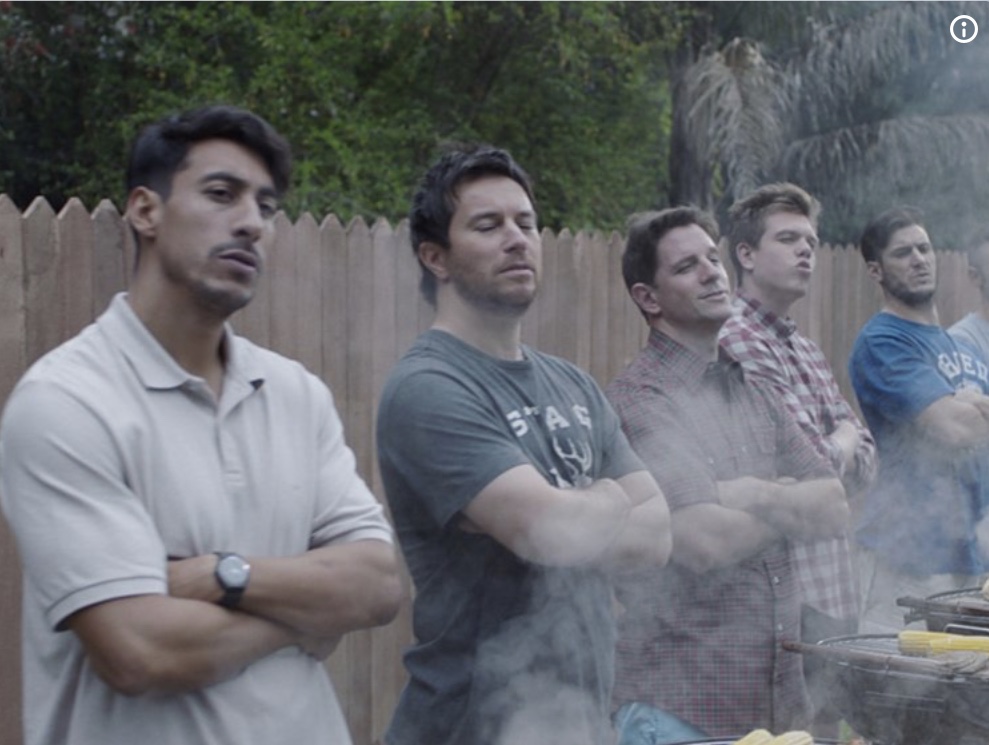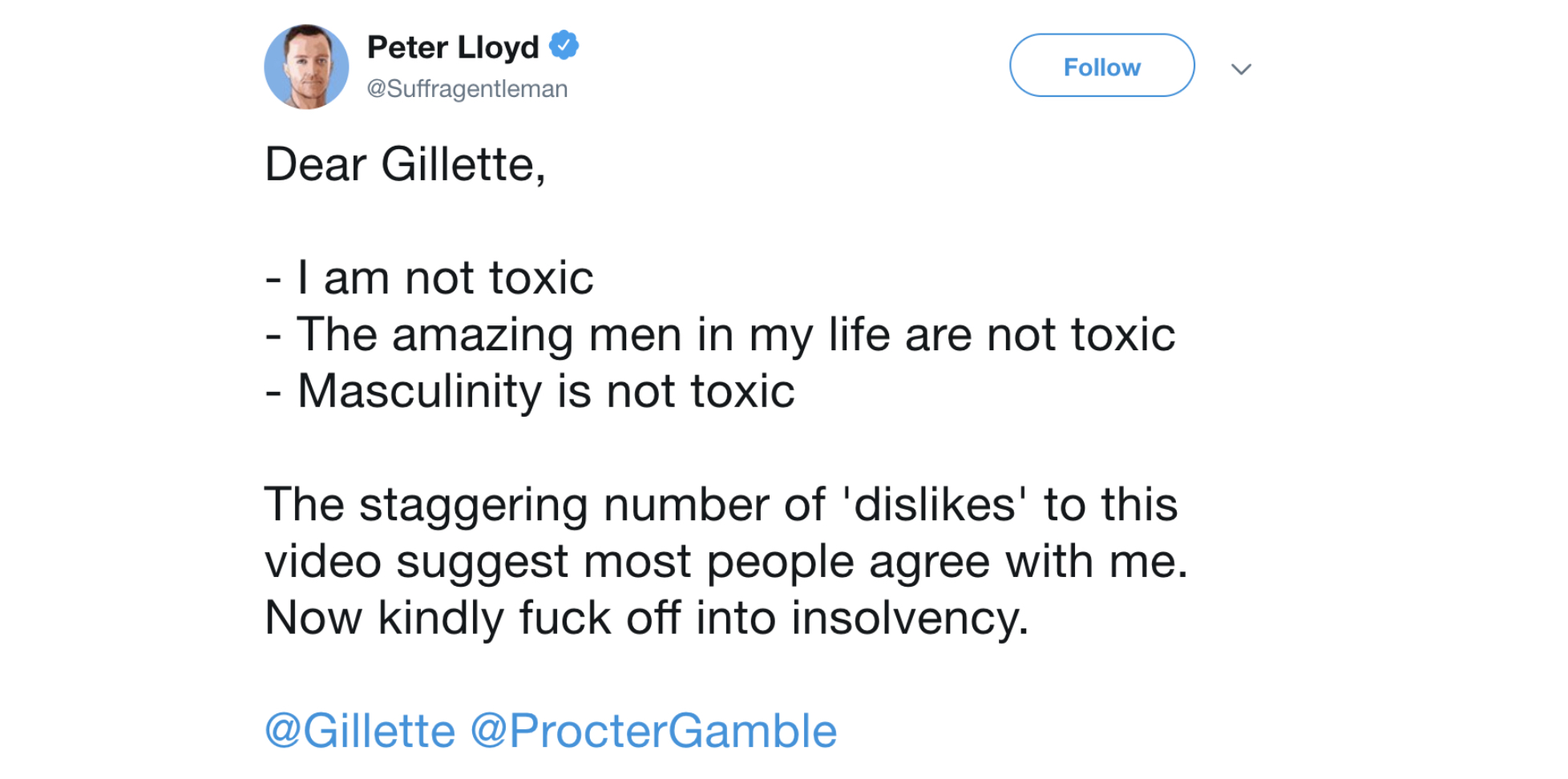After getting on board with #Metoo movement, shaving company Gillette has been receiving admiration and insults since releasing their new advertisement campaign that aims to criticise ‘toxic masculinity’.
The video is shorter than 2 minutes and is titled “We Believe”, showcasing boys bullying each other, men harassing women and excusing all of these actions with one phrase – “boys will be boys”. The voice asks a question – ‘ Is this the best a man can get?’, the question is answered in further clips of men standing up to bullying and protecting women from the harassment. Here is a look at the Gillette ad:
https://m.youtube.com/watch?v=koPmuEyP3a0
The campaign has been watched more than 25 million times on YouTube since the day it was posted in January. However, responses to the campaign have been diverse, some tend to praise this as a revolutionary approach, whilst others threaten to boycott the company. Piers Morgan, British TV personality, has tweeted: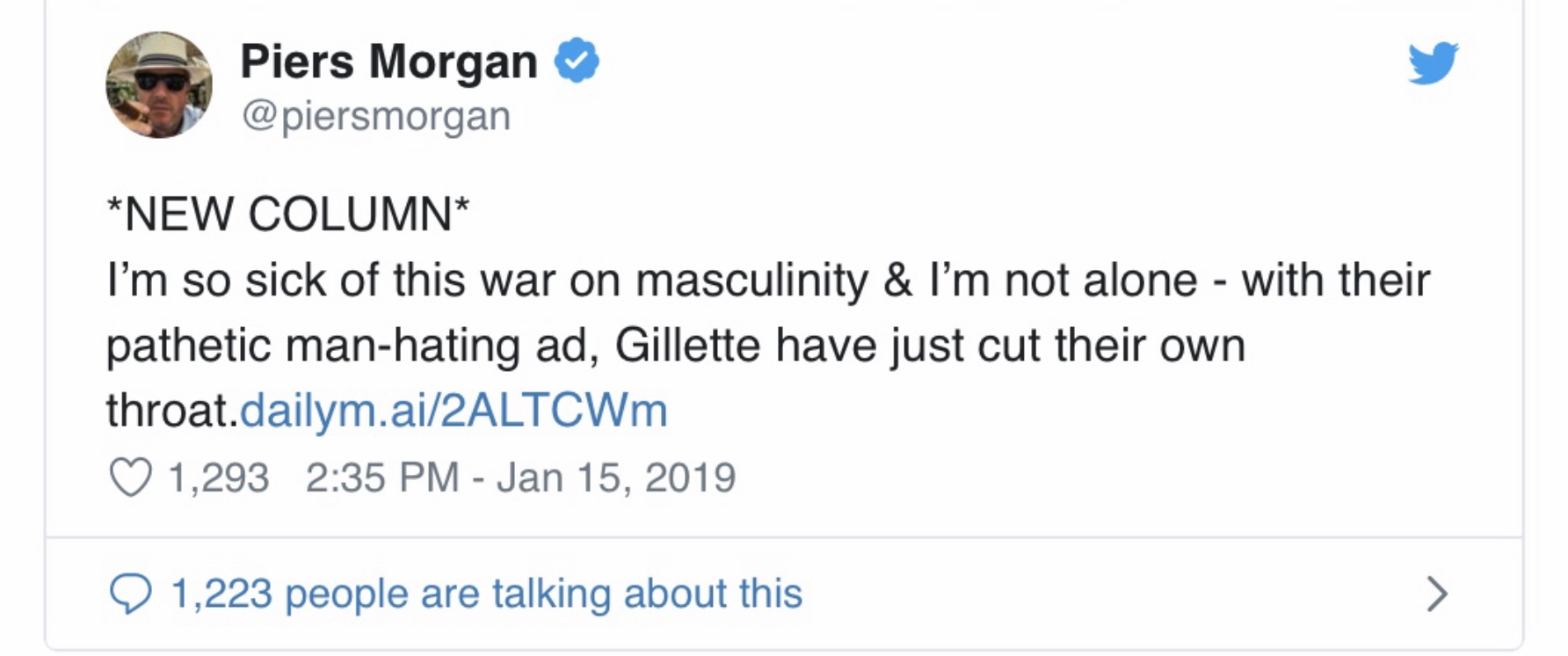
Another supporter of the backlash stated : 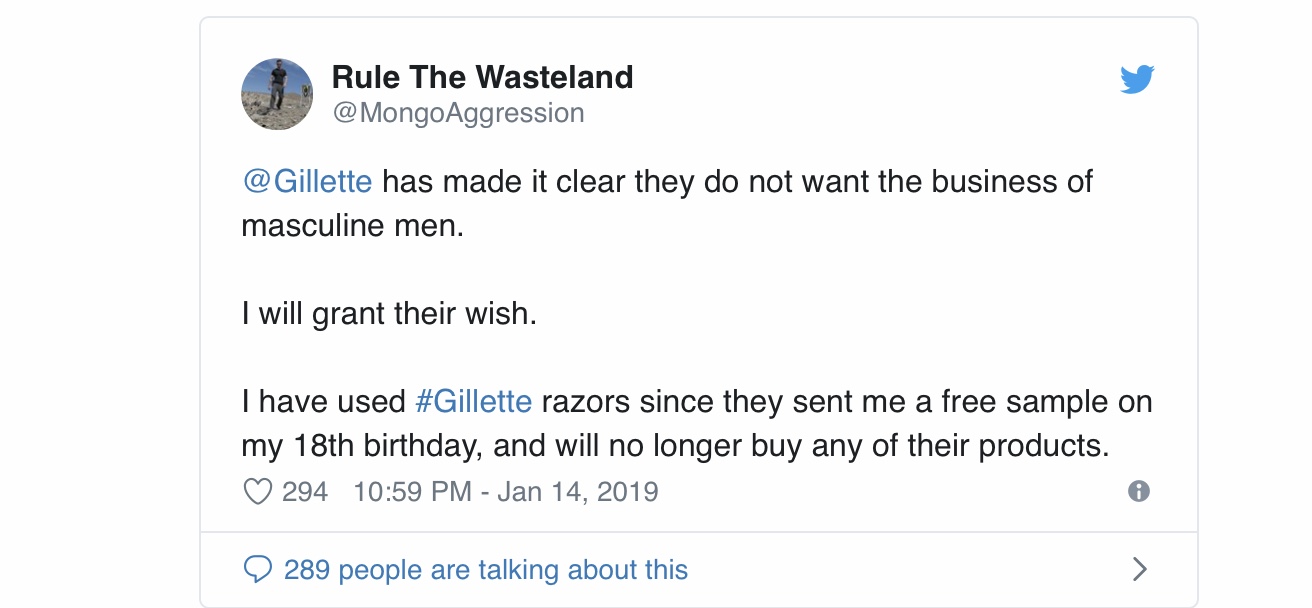
Others, including some Fox News supporters, argued that ‘there’s nothing wrong with masculinity’:
Lucy Cokes, the senior lecturer of Falmouth University’s advertisement department, reviewed the campaign, commenting that when it comes to advertisements that aim to challenge stereotypes there is always an expectation of backlash.
“I do think, the society is ready for this type of communication. Additionally, The Advertising Standards Authority has new guidelines as of last year in relation to not using gender stereotyping in advertising, so really this signals it is time to change.”
She added: “It is really refreshing for a brand to take this stance, this advert is showing how things have been and sometimes are. Unless we face this and talk about it, we can’t change it.”
However, some men have highlighted in the backlash that there is a poor comprehension of how things actually are by claiming: ‘Imagine if women were told what to do, they wouldn’t put up with that’. 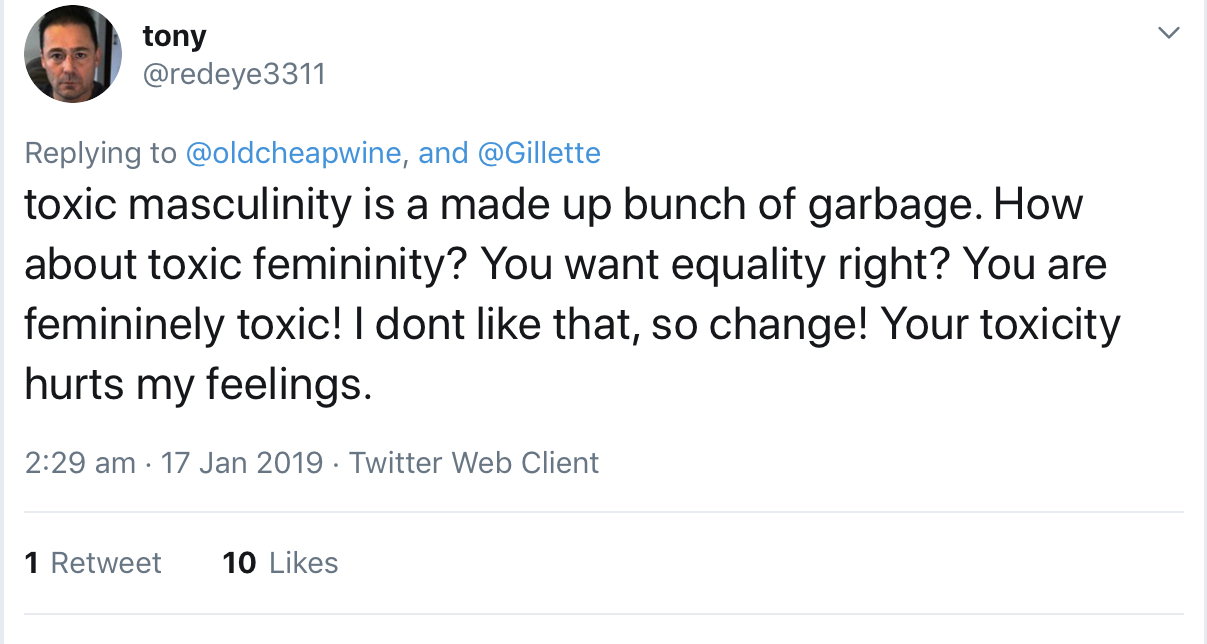
But aren’t women told to be better in pretty much every piece of marketing in the media?
Advertisement for women consist of such sentiments as – look better, make up will cover your flaws, always look natural, be skinny – but not too skinny, be a self- sacrificing mother and the best chef in the world.
Therefore, when men argue that there are no campaigns challenging toxic femininity, they just aren’t noticing the aspects of everyday life and issues that have been implanted in modern society.
The notion of toxic femininity has been around since Adam and Eve, if a woman doesn’t prove to be an excellent wife or mother, she’s unfit for the marriage. In order for a female to be ‘good’, she has to be nurturing, submissive and undemanding. Toxic femininity has the ability to turn women into objects. The advertisements tell women to be that “good” female, however there’s one factor that we underestimate, all this nurturing, cooking and looking good takes time, whilst ‘not bullying’, “not harassing women” as Gillette campaign suggests it will only save men’s time.
The responses to the campaign only prove the deeply embedded presence of toxic masculinity in society as response to the ad, asking men to stop catcalling women, was “let the boys be damn boys!”. And if that’s how things are, then we need more advertisement sending a prescient message that encourages men to set a good example.
Gillette clearly highlighted that things can be and should be changed, a company that once argued that ‘the millions of big, strong-limbed supermen who are fighting to save freedom,’ has now created an ad that challenged the initial claim. Lucy Cokes adds that “I see things are changing and I can’t imagine any ‘woke’ man choosing to boycott Gillette on this basis.”
Nevertheless, this backlash just highlights once again that we still got a long way to go in the battle against toxic masculinity.

